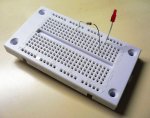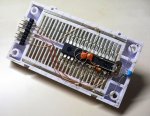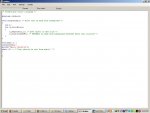I will most likely never stop using picaxes for various projects, but being what they are, they have many limitations, so I am looking to graduate from the picaxce to a more powerfull microcontroller.
I would be interested in hearing recommendations on what people think the next step should be.
I'm thinking about the 32bit series of PIC controllers my Micrchip, but I have never programmed in C before. I don't think it would be that hard, but I would love to find a more powerfull microcontroller that can be programmed in basic.
Does anyone have any suggestions? I love the idea of having a RTC, ethernet, USB and other toys built right into the controller not to mention the ability to write DOS readable files to things such as a micro-SD card easily.
I'd love to hear opinions from those that have experience with the "next step" from the Picaxe. I am definatley computer and electronics literate, so new programming languages and various programming circuits don't intimidate me in the least (If anything, I view them as a challenge!)
I would be interested in hearing recommendations on what people think the next step should be.
I'm thinking about the 32bit series of PIC controllers my Micrchip, but I have never programmed in C before. I don't think it would be that hard, but I would love to find a more powerfull microcontroller that can be programmed in basic.
Does anyone have any suggestions? I love the idea of having a RTC, ethernet, USB and other toys built right into the controller not to mention the ability to write DOS readable files to things such as a micro-SD card easily.
I'd love to hear opinions from those that have experience with the "next step" from the Picaxe. I am definatley computer and electronics literate, so new programming languages and various programming circuits don't intimidate me in the least (If anything, I view them as a challenge!)



